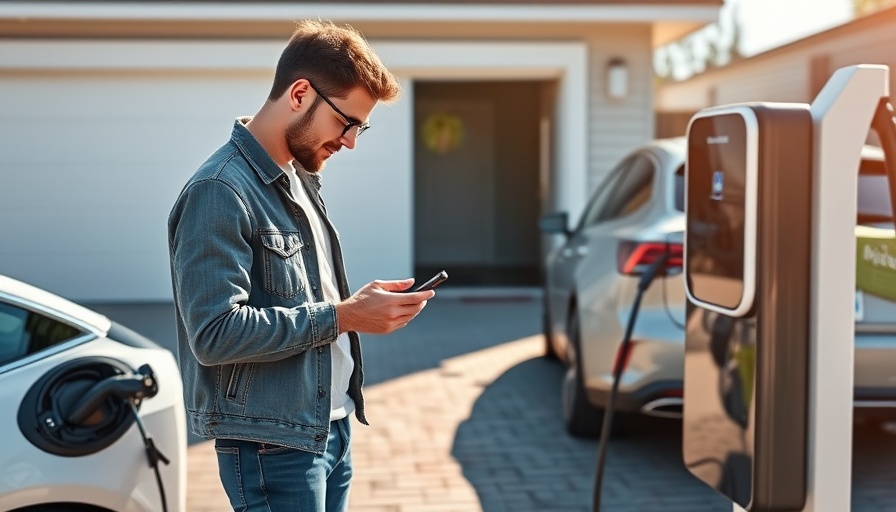
Understanding Your Lemon Law Rights for Electric Vehicles
Electric vehicles (EVs) are increasingly popular for their sustainability and advanced technology. As consumers lean towards cleaner modes of transport, many assumed that these vehicles could be immune from the common issues faced by traditional cars. However, it’s crucial to understand that EVs are not exempt from lemon laws, which apply equally to all vehicles under warranty that develop substantial defects affecting their usability. This includes the high-end Teslas and the more economical Nissan Leafs.
The Importance of Lemon Laws
Lemon laws were designed to protect consumers from defective automobiles that cannot be repaired after a reasonable number of attempts. Understanding these laws is essential for any EV owner because if your car turns out to be a lemon, you have legal rights to demand remediation from manufacturers or dealers.
The basic principle of lemon laws is straightforward: If your EV cannot be repaired after multiple attempts or renders you inconvenienced for over 30 days, you may have a case. Legal protections do not waver due to the vehicle's price or its power source. This safety net reassures buyers that they won’t be economically shackled to a malfunctioning vehicle.
Common EV-Specific Defects
While electric vehicles are generally viewed as reliable, they can experience specific defects that traditional vehicles might not encounter as frequently. Notably, common EV issues can include:
- Battery and Charging Problems: Problems such as imbalance in battery cells or failure to hold charge can lead to significant inconveniences and expenses. Though EVs typically offer lengthy battery warranties, owners should be mindful that these may not always fall under lemon law protections.
- Software Glitches: EVs increasingly rely on complex software systems for their operations. Bugs in these systems can hinder driving functionalities. Recurring software issues can lead to legal standing under lemon laws if the manufacturer fails to rectify them.
- Repair Delays: Electric vehicles require specialized labor for repairs, and parts may not always be readily available. Delays can extend a consumer’s inability to use their vehicle, lending further validity to potential lemon law claims.
Practical Steps for Reclaiming Your Rights
Documentation is pivotal when dealing with defective vehicles. As an owner, you should keep meticulous records of any issues experienced with your EV, including dates of service, diagnostic assessments, and the specifics of any updates performed. This information can significantly bolster your claim.
Start by drafting a certified letter addressed to your dealer detailing your vehicle's problems and requesting a solution. By doing so, you are establishing a documented timeline of communication, should you need legal recourse later. Additionally, be cautious and read your purchase agreements thoroughly before accepting offers of repair, replacement, or buyback; many include stipulations that could restrict your ability to pursue further legal remedies.
Expert Insights on Handling Lemon Law Cases
Consulting with a lemon law attorney can be invaluable. These specialists can guide you on complexities around lemon claims, helping to navigate any potential negotiations with dealerships or manufacturers. Remember, manufacturers may prioritize costs over customer satisfaction, so having a knowledgeable advocate by your side can ensure that your rights are protected.
Future Trends in Electric Vehicle Technology
As electric vehicle technology advances, it’s essential to anticipate the associated legal ramifications. With the shift towards more sophisticated software systems and stronger battery technology, vehicles may encounter unforeseen issues. Buyers need to be aware and prepared to invoke their lemon rights as technology evolves. Remaining informed not only enhances your consumer confidence but can also safeguard you against future complications.
Conclusion: Stay Proactive and Informed
Being aware of your rights as an EV owner is paramount for a trouble-free experience. Lemon laws serve significant protective functions in ensuring consumer wellbeing in the automotive market. As an informed buyer, keeping comprehensive records, understanding the specificities of defects, and consulting with legal experts when necessary can empower you in your ownership journey.
As the automotive industry continues to embrace electric vehicles, staying proactive is crucial. If you find yourself facing repeated issues with your EV, don't hesitate to seek help and assert your legal rights. The landscape is continually advancing, but knowing your lemon law protections can make all the difference.
 Add Row
Add Row  Add
Add 




Write A Comment